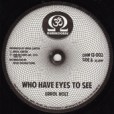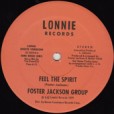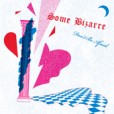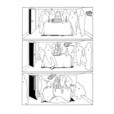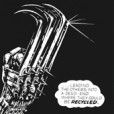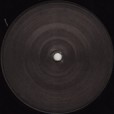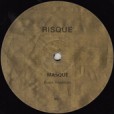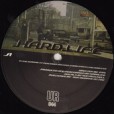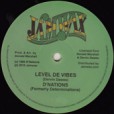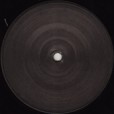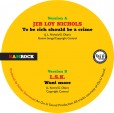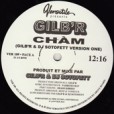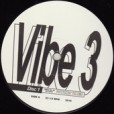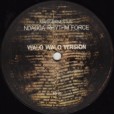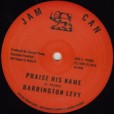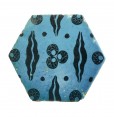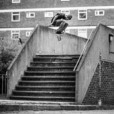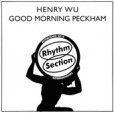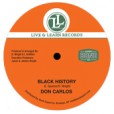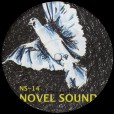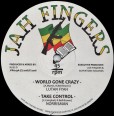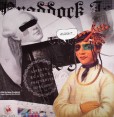Your basket is empty

Bringing together two Cry Tuff sevens from 1976. (Gimme Gimmie is the same heavyweight rhythm as Prince Far I’s Zion Call, aka Concrete Column.)
None other than Blawan on his lonesome ownsome — after collaborations with Pariah as Karenn, and Surgeon as Trade — returning to the blood-drenched scene of his heinous Why They Hide Their Bodies.
New name, new sound; heavier and slower than his Ternesc output. The title track is the banger. Acid techno — deliberate, widescreen and ominous.
Romping-stomping, fuck-this-shit, soulful Detroit house.
Fervently animated by the spirit of Prince, Aaron Carl’s remix is double trouble.
Ace, driving digi from 1989. Classic JA vocal-trio singing by Dervin Dawes and spars, with expert backing by the Firehouse Crew, full throttle at Music Works.
Still tears the place up.
A fresh set of stripped, rubbery, bass-heavy grooves, to consolidate his Idle Hands debut; seaming FWD-night vibes, and Skull Disco, tribalism and grime.
Sweet, implacably socialist lovers, re-phrasing the Still Cool classic beloved by Shaka (and its metrical debt to Jah Jah See Them A Come).
Produced by Adrian Sherwood; with George Oban from the original Aswad crew, playing bass.
‘We ended with those two versions of Cham, which are as often when I work with the Sex Tags man the result of live takes almost unedited. We also add some percussions from Shadi Khries and we recorded two versions of the same track within hours. One being bass driven with a lot of psychedelic noises and the other one more space-techno. Our adventures continues. Here is another slice of spaced out music. Hope you’ll enjoy.’
Three killers heralding the latest phase of this dazzling expression of a dream Dakar-Berlin nexus. All instrumental — though the opener has snatches of singing — with the vocal versions held back for the album.
The music just gets deadlier and deadlier — harder-boiled and deeper; more focussed, confident and dubwise.
Evoking the ancient cultural legacy of the griots, ‘Walo Walo’ is also the name of the sabar rhythm underlying the opener, which features Ibou Mbaye’s percussive synth-work, Mangone Ndiaye Dieng’s kit-drumming, and Bada Seck’s rigorous jolts of lower-pitched Thiol drum. The ‘Groove’ version is tough as nails; well and truly gnarly.
A tribute to the Baye Fall leader, Ndiguel Groove is a sparse, mellow interpretation of the most traditional cut on the album, showcasing Assane Ndoye Cisse’s insinuating guitar lines, Laye Lo’s super-elasticated snare-drumming, and Bada Seck playing the khine drums associated with the Baye Fall. (Short and wide; lightweight but low-pitched.)
Pretty awesome.
Fab Phang chugger. Barrington kills it; grooving dub.
Pure worries from Leipzig — three club burners steeped in Detroit traditions, distilling the explorations in collective, nervy hypnosis of KM live sets. As the music slowly unfurls, there he is at every turn, subtly tweaking its parameters, redistributing its weight, pricking its grooves into a state of utterly infectious perpetual movement.
The two visions of Chilazon track opposite pathways: the first is twelve minutes of gorgeous, dubwise, aquatic techno, spattered with kicks and razor-sharp hi-hats, and smeared with ghostly echoes; then a terse mesh of broken drums, escalating to a quiet yet feverishly intense peak. Lanthanum is calligraphic swordplay, its toms and bass stabs warily circling one another in a graceful steppers’ dance, spaced-out and fathoms-deep.
Samo lived in Hong Kong for a bit. He rescued a dog and brought him back to Stockholm. He skates but that’s not him on the front. He put together one of the best very records on LIES but this four-tracker kills it dead. Ben UFO’s been rinsing it. The dog’s name is Denzil.
The recording debut of a collaboration between Jordan ‘Jordache’ Czamanski and Ilya Ziblat Shay. Three freestyling chunks of hallucinatory electronica and freaking jazz; plus a sublime remix by Parisian maestro I:Cube, with MT’s wild keyboard lines, distant bells and general insobriety threading a tactile, sunrise-friendly house groove. Tropical jazz-funk for the synthesizer generation. Call it Balearic and die.
